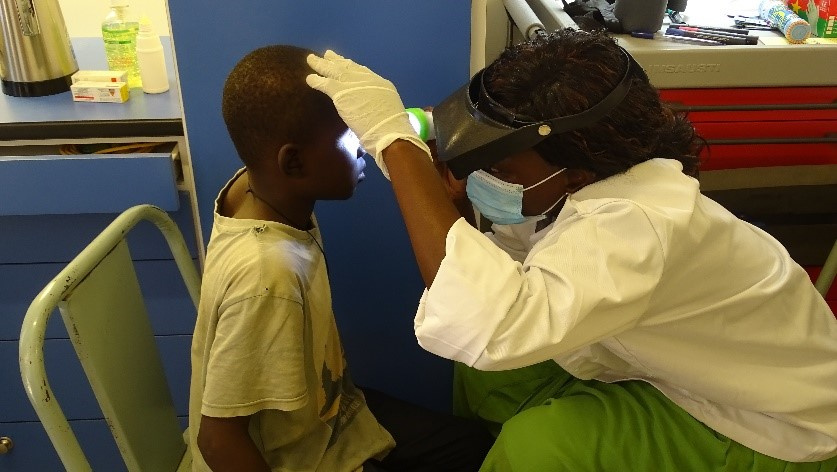Context
Blindness is a major public health problem in most developing countries. In sub-Saharan Africa, 1% of the population is affected by visual impairment, this is five times more than in developed countries. Concerning children, the prevalence of blindness is 0.3/1000 in developed countries compared to 1.2/1000 in poor countries.
In Burkina Faso, statistics on eye diseases in children are not widely available and are hardly ever updated. Public health structures do not have sufficient means to conduct early detection and prevention campaigns for eye diseases, especially for children. Several schools have to refuse children suffering from severe visual impairment or blindness, due to a lack of human, financial and material resources (a blind or visually impaired child has almost no hope of attending school in the country). All these elements show that this segment of the population is poorly taken into account in terms of eye health in the country.
Supported project
Eye health, particularly among children, faces several challenges in Burkina Faso. Aware of this, the NGO Asmae, in collaboration with the National Union of Burkinabe Associations for the Promotion of the Blind and Visually Impaired (UN-ABPAM), initiated in 2019 the project Grandir ensemble for a better integration of children aged 3 to 6 years with visual impairment in the district 2 of Ouagadougou.
The Grandir ensemble project proposes a multi-sectoral and multi-actor approach (institutional, civil society, International NGOs) to develop a comprehensive care system for visually impaired children aged 3 to 6. It includes 4 priority areas: improving access to and quality of eye care, improving access to and quality of preschool inclusion, improving social support, improving synergy of actions in eye health, inclusive education and social support for children and their families.
Improving access to and quality of eye care is the main action supported by the L'OCCITANE Foundation in its collaboration with Asmae. It consists of :
- Strengthening the capacities of the medical staff of the National Center for the Fight against Blindness (CNLC), supporting its operation and strengthening its equipment,
- Supporting the organization of information and community awareness campaigns,
- Supporting early detection campaigns for eye diseases,
- Supporting and monitoring the referral of screened children to the CNLC for better care and orientation according to the case.
Some figures
Budget 40,000 euros
Result 21,952 beneficiaries
Testimonies
"We notice in that in the received materials there is part of the material that concerns the Growing Together project and then there are products for the Covid-19 which are also taken into account. In any case, we thank you for this donation which will be very useful to take in charge our patients. It will also alleviate the suffering of the national center for the fight against blindness because just a few days ago we were just talking about the testing glasses, which are there and are all frosted and with which we can barely see. So, it is really a relief, this material is timely to supplement the material which is already very obsolete at the NCFB level.
We wish the project good luck, we are already working together, this is our common project! We wish the NCFB good luck to take in charge its patients and that all will be for the best for our patients and for Burkina Faso. Thank you Asmae and her partners who contributed to make this donation reach us.”Dr Marie Emmanuelle ZOURE, Director of the Prevention and Control of Non-communicable Diseases (DPCM) to which is attached the National Center for the Fight against Blindness (CNLC)
"This project has brought us a lot of things, especially with the strengthening of our technical equipment for consultations. Apart from that, it must be said that the project has allowed us to have some experience meeting children for consultations and screenings. I am very happy to have conducted this experiment. It is important for these age groups of children to have good vision, because vision is involved in almost 85% of cognitive learning. It is a very good thing to be able to go to the target, it is edifying. We are applying the very principle of medicine - Prevention is better than cure."
Doctor Sankara


